
RoboCop: Rogue City was provided by Nacon for review. Thank you!
My experience with the RoboCop franchise was pretty limited going into RoboCop: Rogue City, only having watched the 2014 film near the time it was released. I feel as though this put me at somewhat of a disadvantage, as this is an obvious love letter to fans of the series. I share the sentiment of many that I've seen talk about this game, if you're a fan and enjoyed the original films, you will find a lot of love here, but if you aren't, this game won't make you one.
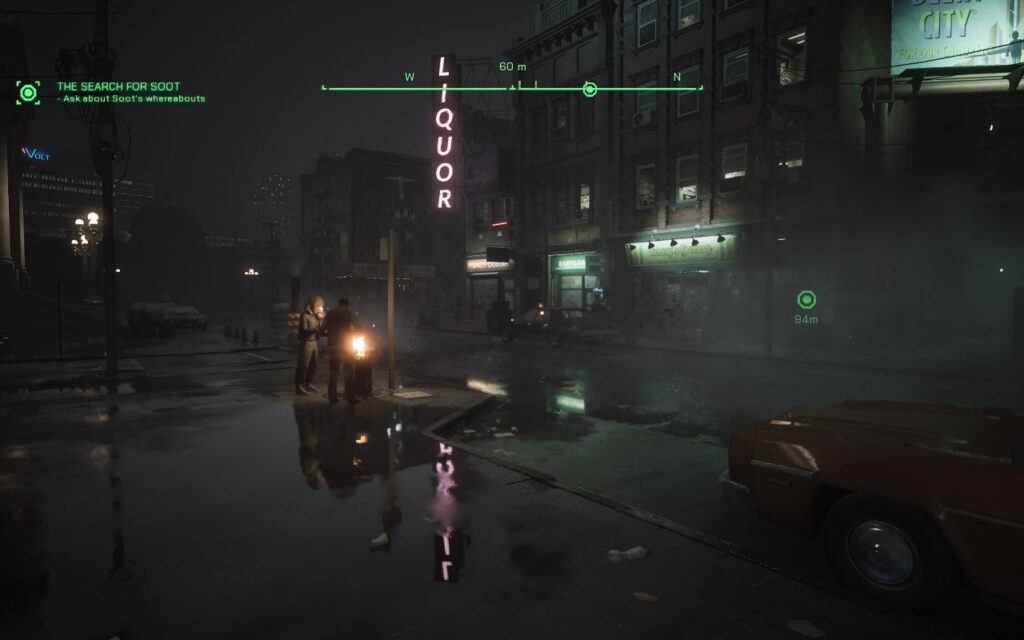
Despite being an "open area" title, the gameplay loop is linear. You're always on a "main mission," and there are sidequests or secondary objectives that you can complete. When finishing the primary objective and leaving the area, you will be warned that you will lose access to the sidequests you haven't yet completed. For better or worse, RoboCop: Rogue City is a short experience, with a casual playthrough likely lasting around 8.5 - 10 hours.
While I did find the graphics impressive, I wasn't particularly blown away by the gameplay itself. The enemies seem quite repetitive near the start of the game. In the first couple of hours of gameplay, you will only meet 1 enemy type, with them wielding 3 different weapons: a Pistol, SMG, or Assault Rifle. Then, suddenly, you'll get an influx of new enemy types, which adds some much-needed variety. The AI is quite decent, they'll take cover and throw grenades from time to time to deal extra damage. I did find the difficulty of the game relatively high, even on the lowest setting.
As for the gunplay, it feels stiff, although that was the most likely the intention, given the fact that you are an actual robot. It's somewhat difficult to do fine movements with your gun, at least on a gamepad, and you often just shoot in the vague vicinity of an NPC, letting the auto-aim assist you in accurately hitting your target. It almost feels as though there is 8-way directional aiming. Against normal enemies, it can make you feel a bit overpowered, which drives home that you are not fully human. There are a few weapons at your disposal, gained from picking them up off of defeated enemies.
One thing I did find rather annoying, however, is that when carrying a weapon, you can't simply walk over another weapon of the same type to refill your ammo, like almost every other modern FPS title. In RoboCop, you have to look at the weapon on the ground and press X on it to refill your ammo, which feels a bit jarring.
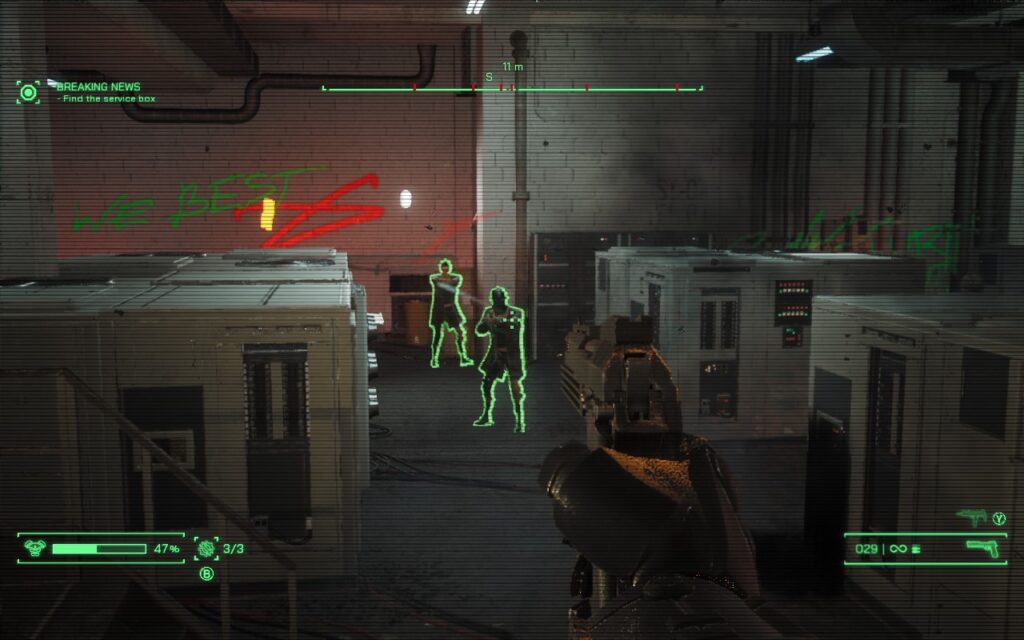
RoboCop also features a level-up system, allowing you to gain experience and spend points to gain skills you can use in a pinch. These vary from allowing you to activate a temporary shield to shockwave blasting nearby enemies to being able to interact with various objects in the environment for either gaining health or completing additional objectives.
I won't spoil the storyline here, but it's reasonably generic stuff, nothing special, but not terrible. It serves its purpose as far as the game goes, which puts the gameplay above all else.
RoboCop: Rogue City is an Unreal Engine 5 title, which are becoming increasingly popular now. Unfortunately, many UE5 titles do not play well with older hardware, particularly hardware that struggles with Ray-Tracing. Fortunately, it does give us an extensive range of settings to tweak, so we can get it to a playable state on the Steam Deck.
The menus support gamepads, making them easy to navigate on the Deck. We have support for 16:10 resolutions, so the Deck's native 1280x800 resolution is on the cards here. Sadly, there's no UI scaling in this game, meaning we're stuck with what we have when it comes to text size, which can sometimes be small.
I also experienced a crash while playing the game with some gameplay to cutscene transitions. This isn't a Steam Deck exclusive issue, though, and the game simply doesn't handle scene transitions all that well. In my case, I could simply reboot and click "Continue" on the main menu, and it placed me after the scene transition that crashed. I didn't lose any progress, but I can't guarantee that'll always happen.
Upon booting RoboCop, we're presented with a rather intensive main menu, which, on the max settings that the game defaulted me to, ran at less than 20 FPS.
The quickest way to set the recommended settings is to go ahead and put yourself on the "Low" preset, then make sure you're using FSR 2.2 and is set to "Balanced." Make sure you scroll down to the bottom and change the Reflection Method to SSR, not Lumen, as Lumen is a UE5 feature that is too intensive for the Steam Deck here. We're also upping Textures to "Epic," as we have enough VRAM to handle this.
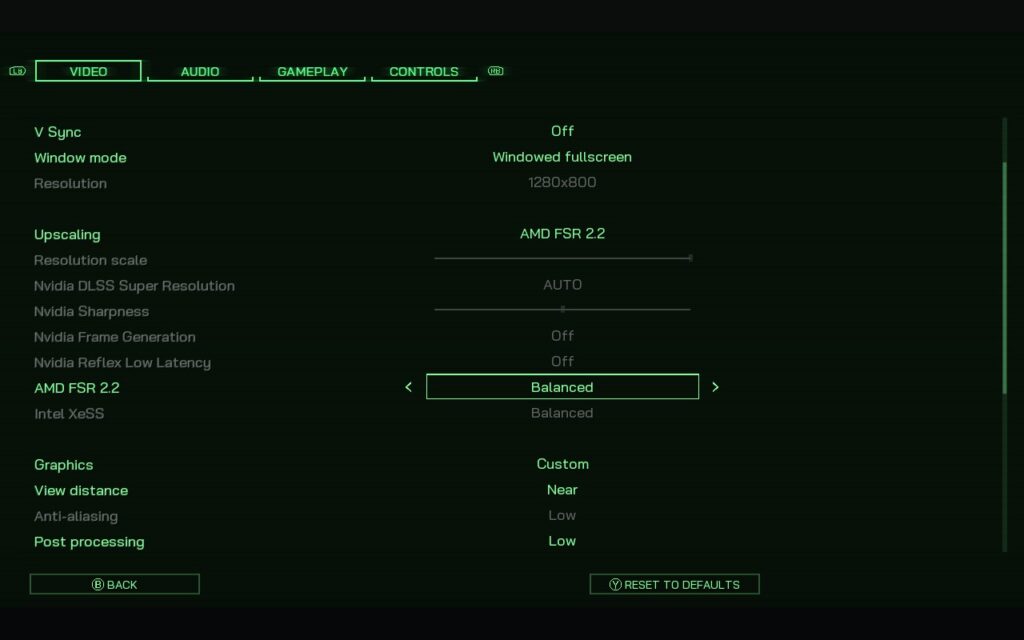
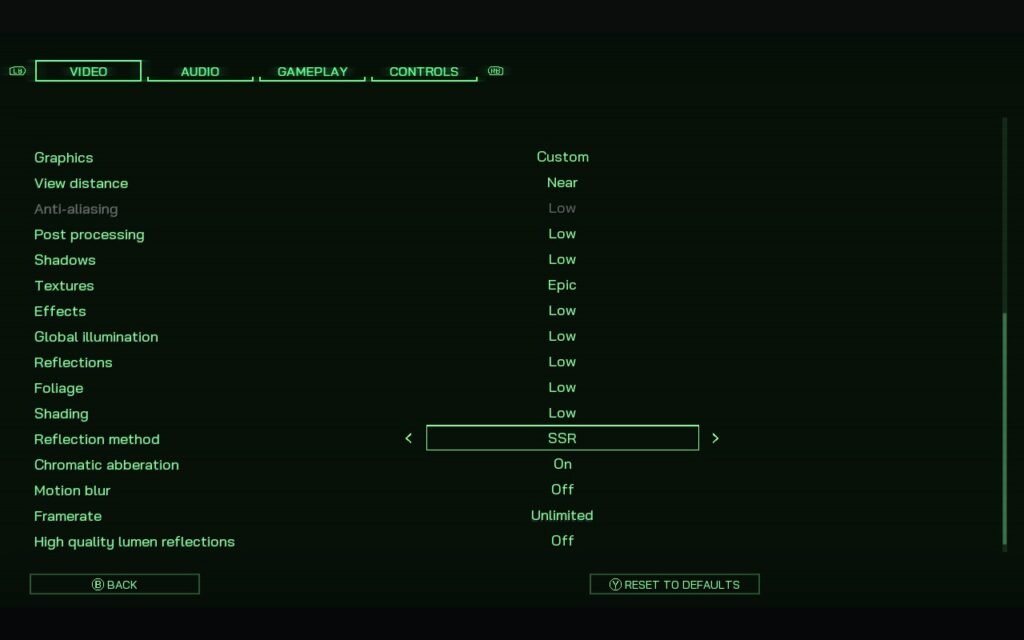
As you might expect, in SteamOS, we're locking the frame rate to 30 FPS, with no TDP limit.
RoboCop: Rogue City is a very intensive title to run, so even on these low settings, we're drawing 18W - 20W from the battery, giving us around 2 hours of battery life. And while the game does maintain 30FPS for most of the time, when a lot of action is on screen, mainly explosions and other particle effects, the FPS can drop into the mid-20s. Fortunately, these particles usually only last a few seconds, and the FPS recovers once they're gone.
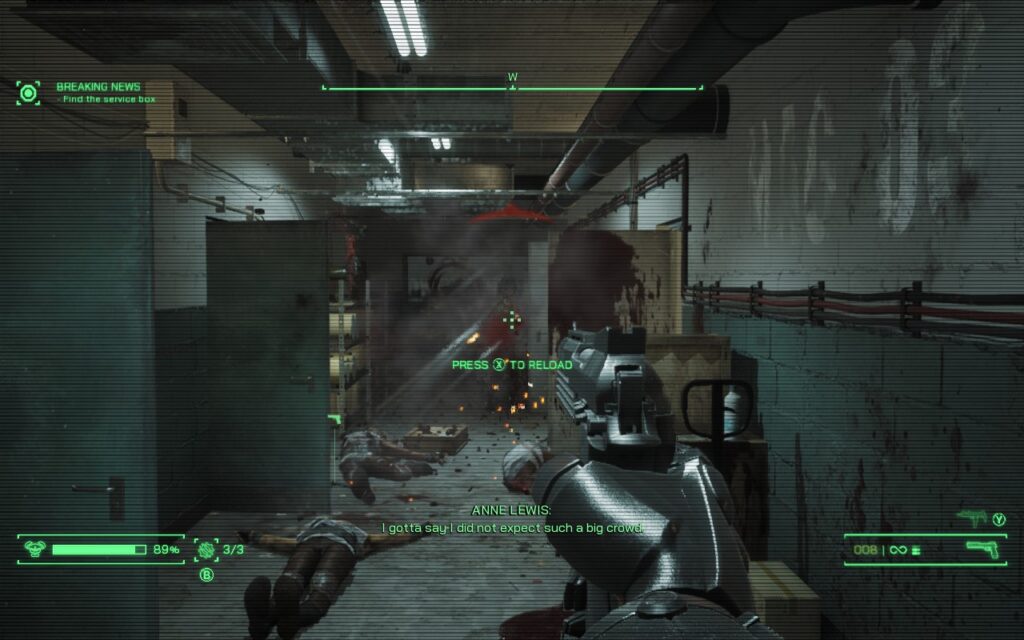
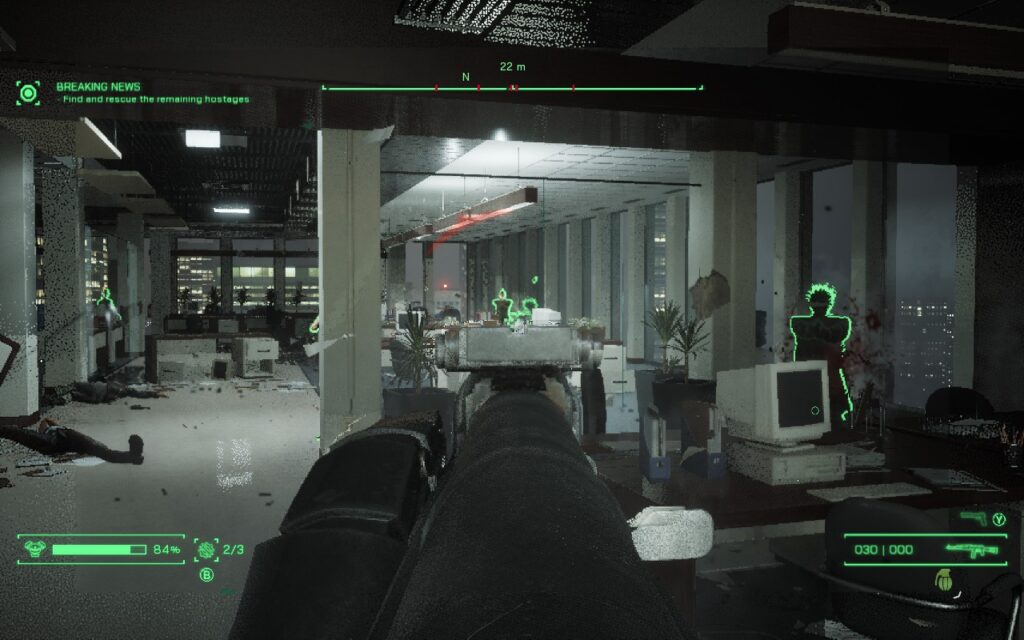
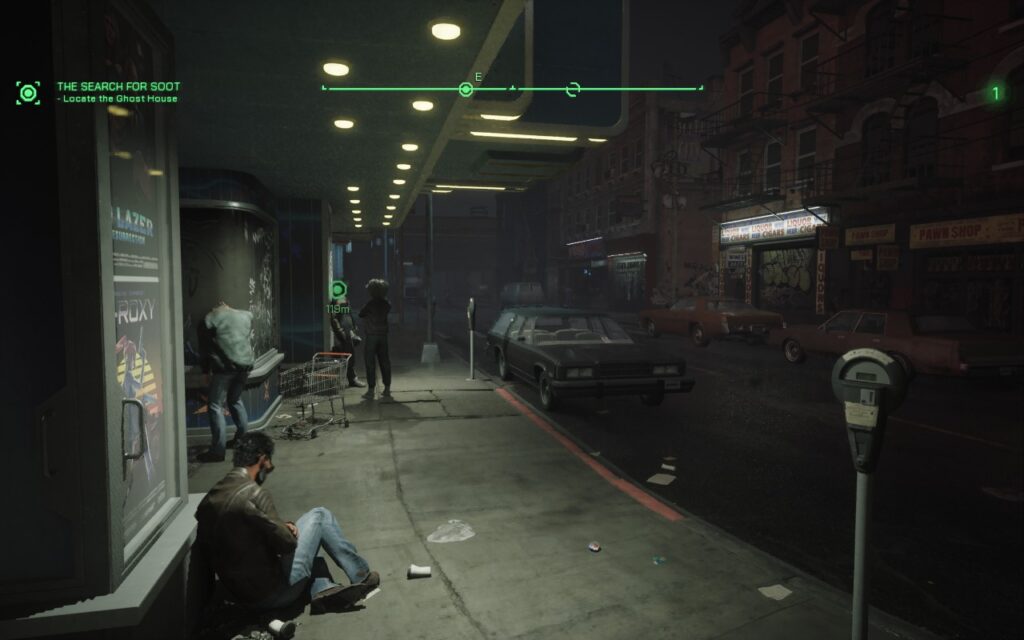
While dropping from 30 FPS isn't ideal, you could lower the FSR scaling to "Performance," but that would make the visuals look much worse. I'd rather have a decent-looking title that loses some frames here and there while quickly recovering. Given the slow nature of character movement, I feel like framerate drops in RoboCop aren't as egregious as they would be in a faster-paced game. There are more drops during cutscenes than actual gameplay though, so be prepared.
FSR 2.2 holds up surprisingly well, and even on Balanced, we get what I'd describe as perfectly acceptable image quality. The most noticeable issue is the reflections on certain surfaces which, as you can see below, can become a bit noisy when moving
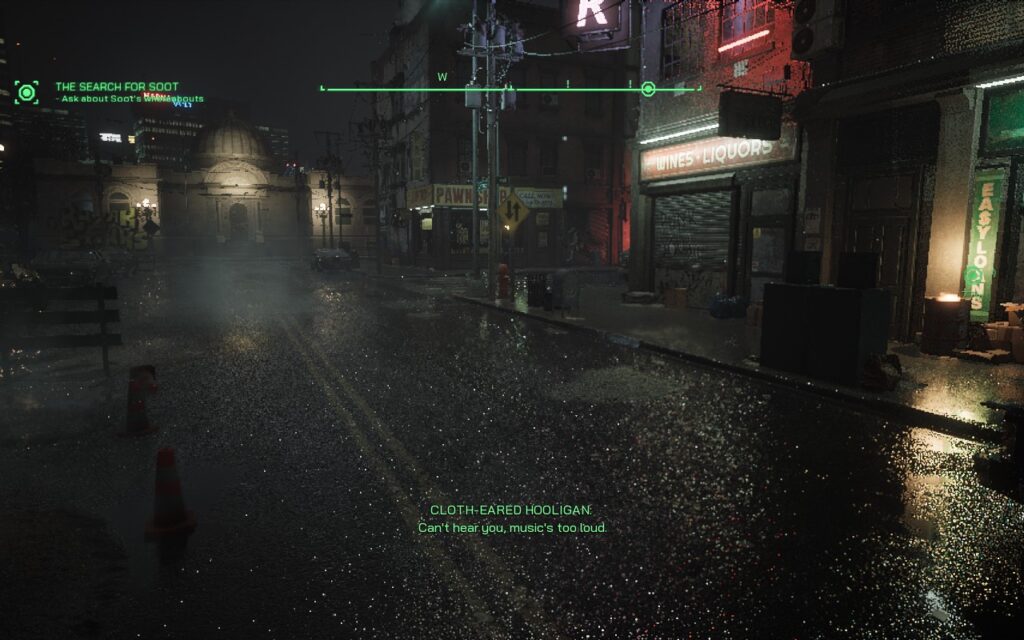
RoboCop: Rogue City has almost no accessibility options unless you count adjusting controller sensitivity and removing motion blur/chromatic aberration.
While I feel as though RoboCop: Rogue City wasn't a game that was made for someone like me, I did enjoy the fairly simplistic combat that the game offers. Walking into a room and feeling like an overpowered tank does have an appeal to it. Sadly, it lost that luster after I walked into the 50th room doing the same thing. It holds up surprisingly well visually on the Steam Deck, and despite the FPS drops here and there, I'd view it as a "playable" experience, if not an ideal one.
If you're a fan of the RoboCop universe, then this is a great game for you. If you aren't, then there may be some better options available with better overall performance or more varied gameplay. Either way, there are a solid amount of compromises to make to play on the Deck, which may be worth it depending on how much you enjoy the franchise.
Our review is based on the PC version of this game.
If you enjoyed this review, be sure to check out the rest of the content on SteamDeckHQ! We have a wide variety of game reviews and news that are sure to help your gaming experience. Whether you're looking for news, tips and tutorials, game settings and reviews, or just want to stay up-to-date on the latest trends, we've got your back.
RoboCop: Rogue City is a love-letter to the RoboCop franchise and its fans. And the Steam Deck just manages to crawl past the finishing line here.

No Forced Compatibility
V-Sync: Off
Window Mode: Windowed Fullscreen
Upscaling: AMD FSR 2.2
AMD FSR 2.2: Balanced
View Distance: Near
Anti-Aliasing: Low
Post Processing: Low
Shadows: Low
Textures: Epic
Effects: Low
Global Illumination: Low
Reflections: Low
Foliage: Low
Shading: Low
Reflection Method: SSR
Chromatic Aberration: On
Motion Blur: Off
Framerate: Unlimited
High Quality Lumen Reflections: Off
Awesome! You've had included recommended game settings. Saves on tinkering for an eternity. Cheers.
You're welcome! That's what SDHQ is all about. Gotta get the best out of our little machines!
I really love that game! It's amazing! And it plays really nice on the SD.
Yes, the developers seemed to do a good job of optimizing it for slower hardware compared to some other UE5 releases. Glad they've given everyone the option of disabling Lumen.